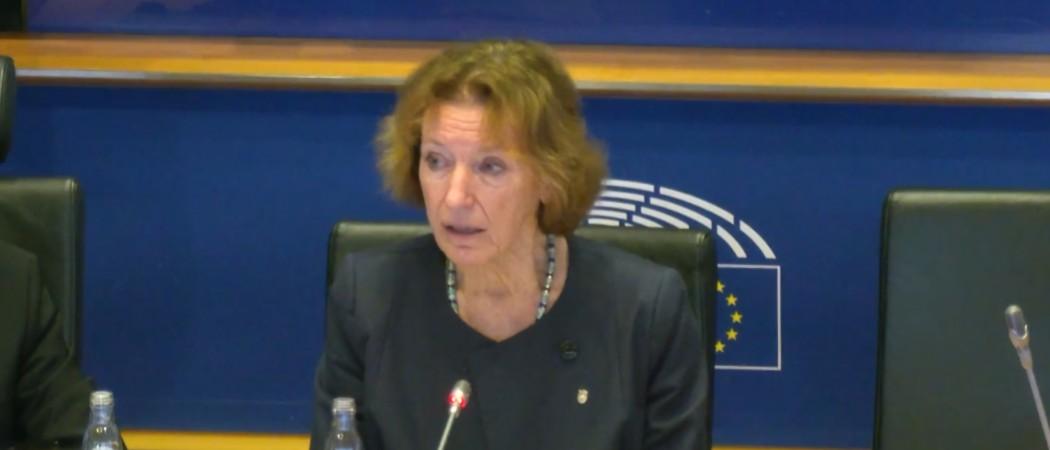The EU frontier research fund is to announce changes in how it assesses proposals, taking a broader view of the potential impact and the contribution to society, ERC president Maria Leptin tells MEPs

Maria Leptin, president of the European Research Council, has spoken of her wish to reform the ERC's research assessment processes. Photo: Screenshot / Committee on Industry, Research and Energy / European Parliament
The European Research Council (ERC) is to make changes in how it assesses proposals for research, the president of its scientific council, Maria Leptin, told the European Parliament today.
As the EU research community as a whole looks to overhaul how it assesses research, the EU’s frontier research fund is following suit and expects to reach conclusions on how it can improve its own process in December.
“Scientific excellence will remain the core criterion, but we have found a way of considering how other contributions to society, to the scientific community will be taken into account,” Leptin told MEPs.
While Leptin did not reveal any details, the thinking appears to be in line with the wider plans for European research assessment reform, which is moving away from bald statistics on the number of journal papers a scientist publishes and their impact factor, as measured by how often others cite them, towards a broader evaluation of the impact of research.
Today, most evaluation systems do not recognise the diversity of research outputs and their contribution to society. But as EU policymakers bank on science to deliver for Europe’s green and digital transitions, the Commission started a push earlier this year to change the mindset, shifting the focus towards scientific contributions to society and the economy.
The ERC’s brief is to support the best researchers to explore the best ideas in any field of science, from health to social sciences. It’s been a recipe for success, with ERC having awarded grants to 12 scientists who went on to win the Nobel Prize, in the past 15 years.
The fund’s evaluation system is seen as one of the reasons for its success. Its peer review process is led by top researchers and designed to pick out the most original proposals. “It’s a brutally critical assessment,” Leptin told Science|Business in October.
But Leptin says she is now open to “pragmatic changes”. With the times changing, the ERC has set up a task force, led by Leptin, to consider various options for revision, to scrutinise the definition of scientific excellence, and to investigate the application and evaluation processes.
Political turn
At the same time, the ERC is looking to “streamline” the process of selecting scientists for its evaluation panels. Each year, the ERC needs 1,000 scientists to join the panels and another 6,000 to act as remote referees.
MEPs raised concerns about the more political turn the ERC may be taking if it includes the consideration of the contribution it makes to society as a whole. Christian Ehler, the Parliament’s rapporteur for the Horizon Europe research programme, in which the ERC is grounded, expressed fears that tying the fund closer to the EU’s policy goals could infringe its autonomy.
“The more weight you give to the societal dimension, the more it gets political and the more it might lead to the appetite for the Commission and others to control the outcome of scientific evidence and results of the ERC,” Ehler warned.
But Leptin shrugged off these concerns, highlighting the importance of research delivering benefits to society. “Let’s be clear, I’m not worried about our independence,” she told the MEPs.





 A unique international forum for public research organisations and companies to connect their external engagement with strategic interests around their R&D system.
A unique international forum for public research organisations and companies to connect their external engagement with strategic interests around their R&D system.